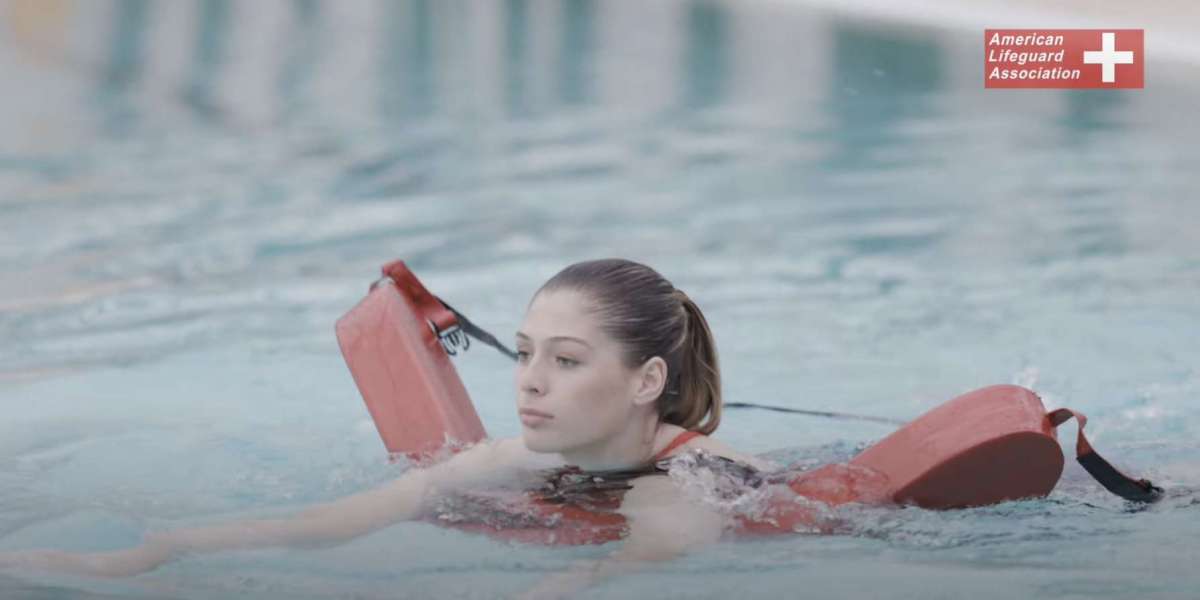Becoming a lifeguard is a rewarding career choice that offers the opportunity to ensure the safety and well-being of others in aquatic environments. However, before you can don the lifeguard uniform, you need to meet specific requirements and obtain a lifeguard certificate. This comprehensive guide will walk you through the necessary steps, training programs, and certifications you need to know before applying.
Why Obtain a Lifeguard Certificate?
Obtaining a lifeguard certificate is crucial for several reasons. It not only certifies that you have the skills and knowledge required to perform lifeguarding duties but also enhances your employability. Many employers, such as pools, beaches, and aquatic centers, mandate lifeguard certification as a prerequisite for employment. Additionally, being certified ensures that you are prepared to handle emergencies effectively, providing peace of mind to both you and the patrons you serve.
Types of Lifeguard Certificates
1. American Lifeguard Association (ALA) Lifeguard Certificate
The ALA lifeguard certificate is one of the most recognized and respected certifications in the industry. It covers a wide range of skills, including water rescue techniques, CPR, and first aid. This certification is often preferred by employers due to its comprehensive training program.
2. Red Cross Lifeguard Certificate
The Red Cross offers a robust lifeguard training program that includes both in-person and online components. This certification is widely accepted and focuses on safety, rescue techniques, and emergency response.
3. YMCA Lifeguard Certificate
The YMCA lifeguard certification program emphasizes water safety, rescue skills, and emergency care. It is an excellent option for those looking to work in community pools and aquatic centers.
4. Ellis & Associates International Lifeguard Training Program
This program is known for its rigorous training and high standards. It focuses on preventive lifeguarding, emergency response, and professionalism in the field.
Requirements for Obtaining a Lifeguard Certificate
Age Requirements
Most lifeguard certification programs require candidates to be at least 15 years old. Some advanced programs may have higher age requirements, typically around 18 years old.
Swimming Skills
Strong swimming skills are a prerequisite for any lifeguard certification. Candidates must be able to swim a certain distance, tread water, and perform specific swimming strokes proficiently. The exact requirements vary by program but generally include:
- Swimming 300 yards continuously using front crawl and breaststroke.
- Treading water for 2 minutes using only legs.
- Completing a timed event, such as swimming 20 yards, retrieving a 10-pound object from the bottom of the pool, and returning to the starting point.
Pre-Course Assessment
Before enrolling in a lifeguard certification course, candidates must pass a pre-course assessment. This assessment typically includes a swim test, treading water, and a timed retrieval exercise. It ensures that candidates have the necessary swimming skills and physical fitness to complete the training program.
Lifeguard Training Programs
In-Person Training
In-person training programs are the most common method for obtaining a lifeguard certificate. These programs include classroom instruction and practical training in a pool or aquatic environment. Key components of in-person training include:
- Water Rescue Techniques: Learning how to perform rescues in various scenarios, including passive and active drowning victims.
- CPR and First Aid: Training in cardiopulmonary resuscitation (CPR) and basic first aid to provide immediate care in emergencies.
- Emergency Response: Developing the ability to respond quickly and effectively to emergencies, including spinal injury management and using rescue equipment.
Online Training
Some organizations offer online lifeguard training programs that combine online coursework with in-person skill sessions. This hybrid approach allows candidates to complete the theoretical components at their own pace while still gaining hands-on experience. Online training is particularly beneficial for those with busy schedules or limited access to in-person courses.
Blended Learning
Blended learning programs combine online coursework with in-person training sessions. This format offers flexibility and convenience while ensuring that candidates receive comprehensive training. Blended learning typically involves:
- Online Modules: Completing theoretical coursework online, including topics like water safety, rescue techniques, and emergency response.
- In-Person Sessions: Attending scheduled in-person sessions for hands-on training and skill assessments.
Certification Process
Course Completion
To obtain a lifeguard certificate, candidates must successfully complete the training program, including all coursework and practical assessments. This typically involves:
- Attending all scheduled classes and training sessions.
- Passing written exams on water safety, rescue techniques, and emergency response.
- Demonstrating proficiency in water rescue skills, CPR, and first aid.
Final Exam
Most lifeguard certification programs include a final exam that tests candidates on their knowledge and skills. The exam may consist of both written and practical components. Candidates must pass the final exam to receive their lifeguard certificate.
Renewing Your Lifeguard Certificate
Lifeguard certificates are typically valid for two years. To maintain your certification, you must complete a renewal course before your certificate expires. Renewal courses often include:
- Refresher training on water rescue techniques and emergency response.
- Re-certification in CPR and first aid.
- Updated information on lifeguarding best practices and industry standards.
Advanced Lifeguard Certifications
Waterfront Lifeguarding
For those looking to work at beaches, lakes, or other open water environments, a waterfront lifeguarding certification is essential. This advanced certification covers additional skills, such as:
- Open water rescue techniques.
- Managing environmental hazards, such as rip currents and marine life.
- Using specialized rescue equipment, like rescue boards and kayaks.
Waterpark Lifeguarding
Waterpark lifeguarding certification is designed for those working in waterparks with unique features like wave pools, lazy rivers, and water slides. This certification includes training on:
- Managing high-risk areas and attractions.
- Performing rescues in waterpark-specific environments.
- Supervising large crowds and ensuring guest safety.
Lifeguard Instructor Certification
Becoming a lifeguard instructor allows you to train and certify new lifeguards. This advanced certification requires significant experience and proficiency in lifeguarding skills. Instructor training programs cover:
- Effective teaching techniques and instructional methods.
- Developing and implementing lifeguard training programs.
- Evaluating and assessing candidate performance.
Finding Lifeguard Certification Courses Near You
Local Pools and Aquatic Centers
Many local pools and aquatic centers offer lifeguard certification courses. These facilities often provide in-person training and are a convenient option for those looking to complete their certification locally.
Community Colleges and Universities
Community colleges and universities frequently offer lifeguard certification programs as part of their continuing education or recreational programs. These institutions provide high-quality training and may offer additional resources, such as job placement assistance.
Online Resources
Numerous organizations provide information on lifeguard certification courses available online. Websites like the American Lifeguard Association and the Red Cross offer search tools to help you find courses near you.
Tips for Success in Lifeguard Certification Courses
1. Prepare Physically
Lifeguard training can be physically demanding. Ensure you are in good physical condition by maintaining a regular exercise routine and practicing your swimming skills. Focus on building endurance, strength, and flexibility to meet the physical requirements of the course.
2. Study the Material
Familiarize yourself with the course material before attending classes. Many organizations provide study guides and online resources to help you prepare. Reviewing the material in advance will give you a solid foundation and increase your confidence during the course.
3. Practice Skills Regularly
Practice the skills you learn in class regularly. This includes swimming techniques, water rescues, CPR, and first aid. Consistent practice will help you master the skills and perform them confidently during assessments and real-life situations.
4. Stay Focused and Engaged
Stay focused and engaged during training sessions. Pay close attention to instructions, ask questions, and participate actively in all activities. Engaging fully in the training process will enhance your learning experience and help you retain important information.
5. Network with Instructors and Peers
Building relationships with your instructors and peers can provide valuable support and resources. Instructors can offer guidance and mentorship, while peers can share experiences and tips. Networking within the lifeguarding community can also lead to job opportunities and professional connections.
In The End
Obtaining a lifeguard certificate is a crucial step in pursuing a career in lifeguarding. By understanding the requirements, completing the necessary training, and staying current with certification renewals, you can ensure that you are well-prepared to safeguard lives in aquatic environments. Whether you choose an in-person, online, or blended training program, the knowledge and skills you gain will be invaluable in your role as a lifeguard. Start your journey today and take the first step towards a fulfilling and impactful career in lifeguarding.







